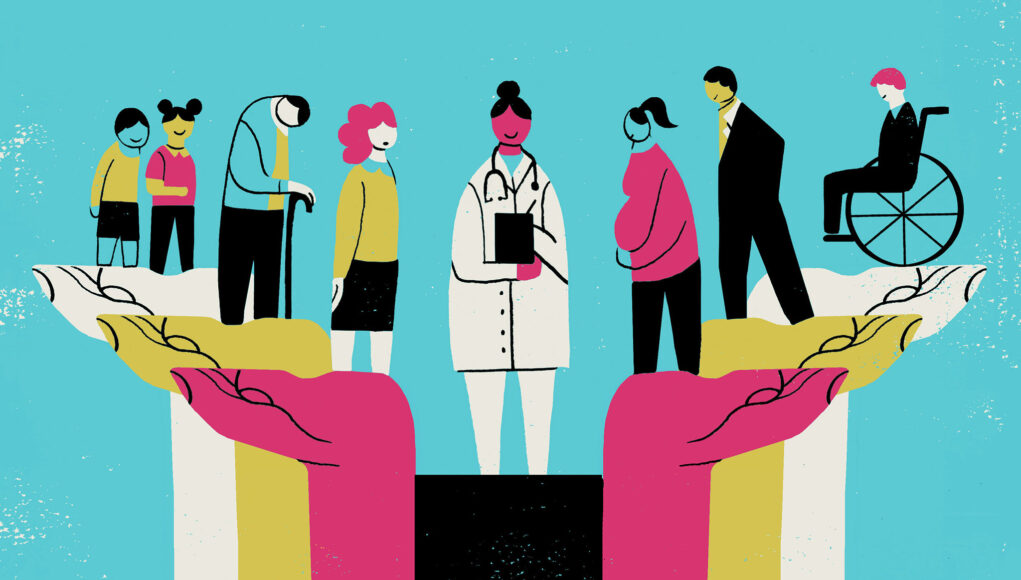A one-size-fits-all healthcare system sounds like a dream come true. In theory, providing the same care to everyone is easier when you have one uniform set of standards for your healthcare system. But this article suggests that this is not always the best option.
Understanding what works and what does not work with such a system is essential.
Table of Contents
What is the One-Size-Fits All Health Care System?
The current healthcare system is often called the “one-size-fits-all” system. This refers to the idea that all individuals should be treated the same, regardless of their personal health needs or preferences.
However, this approach has not successfully provided everyone with the best possible care. It has led to widespread dissatisfaction and even inequality among patients.
Individual differences
There are many problems with the one-size-fits-all approach to healthcare.
- First of all, it doesn’t take into account individual differences. For example, some people may require more intensive care because of their medical history or age.
- Second, getting treatment from different providers can be expensive and time-consuming. And finally, it can lead to disparities in care, which can cause serious health consequences for some patients.
Reforms
There are several ways we could reform our universal health care system to improve outcomes for all patients. One option would be to create a system where each patient receives tailored care based on their specific needs and preferences.
Another option would be to implement universal healthcare coverage, which would provide insurance coverage for everyone, regardless of income level. And finally, we could explore new ways of delivering healthcare services to make them more accessible and affordable for everyone in need.
Why does the One-Size-Fits All Health Care System work?
Many people believe that the one-size-fits-all healthcare system works well for everyone. However, many people think that this is not the case.
There are many different types of healthcare needs and preferences out there. This means that the one-size-fits-all healthcare system does not work well for everyone.
Example: Many people do not like how they feel when they go to the hospital. They feel like they are prisoners in their own bodies, and they do not feel comfortable with the medical staff.
This means that many people do not want to go to the hospital. This means that hospitals have to deal with many patients who do not want to get treated.
Overall, it can be said that the one-size-fits-all healthcare system does not work well for everyone because it does not consider individual preferences and needs.
What are the disadvantages of the One-Size-Fits-All Health Care System?
One of the main disadvantages of the One-Size-Fits-All Health Care System is that it can be difficult for patients to receive the care they need.
For example, if a patient is obese, the Universal health care system may not be able to provide them with the same level of care as a thinner patient.
Additionally, many patients do not have access to quality healthcare due to high costs. This is especially true in rural areas, where fewer healthcare providers are often available. Sometimes, patients may have to travel long distances to receive quality healthcare.
Distribution of Resources
Another disadvantage of the One-Size-Fits-All Health Care System is that it can lead to imbalances in the distribution of resources.
For example, wealthy people may be able to afford better healthcare than poorer people, which can result in unfairness.
Additionally, hospitals and clinics may become overwhelmed if they are required to provide care for everyone who needs it. This can lead to long wait times and poor-quality service.
Finally, the One-Size-Fits All Health Care System can lead to medical errors and other problems.
For example, if a hospital does not have enough space to treat all its patients efficiently, patients may experience delays in their treatment or even be turned away altogether. This can lead to serious health complications or even death.
What are some of the alternatives to the One-Size-Fits All Health Care System?
One of the main criticisms of the One-Size-Fits-All Health Care System is that it doesn’t consider the individual’s needs.
There are several alternatives to the current healthcare system, each with its benefits and drawbacks.
The first option is to have a system where each person has an insurance policy that covers their specific needs. This would require everyone to be fully aware of their health history and be able to afford an insurance policy on their own.
However, this option would allow people to get care from providers specializing in treating their specific condition rather than going to a general practitioner or hospital for treatment.
Governments facilities
Another option is for governments to provide universal healthcare coverage. This would require significant financial investment,
But it would be worth it if it saved money overall on healthcare costs. Universal healthcare coverage would also cover preventive care, which is vital for keeping people healthy and reducing the cost of future medical expenses.
There are also alternative healthcare systems that focus on prevention instead of treatment. These systems focus on lifestyle changes such as diet and exercise, which can help improve overall health and reduce the risk of developing chronic diseases.















